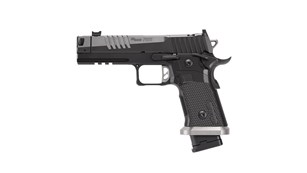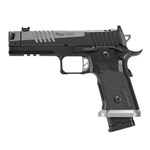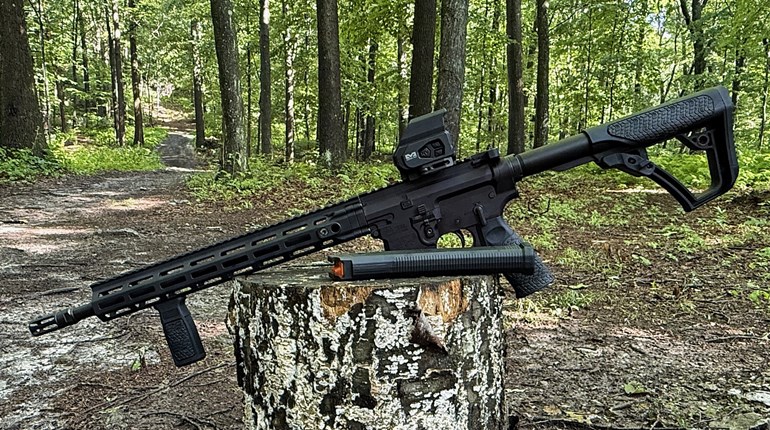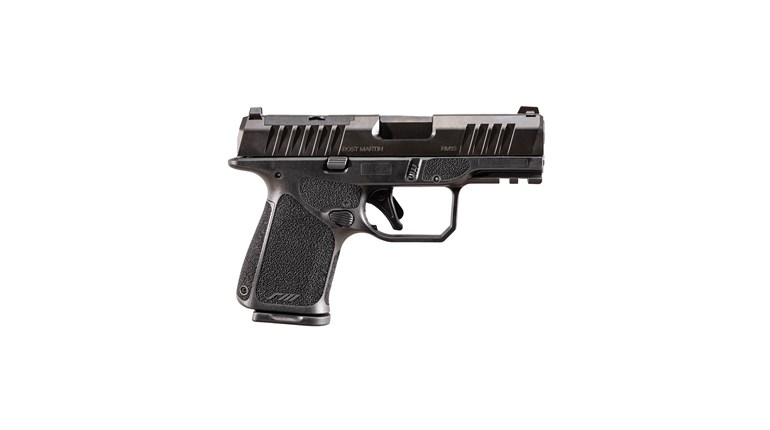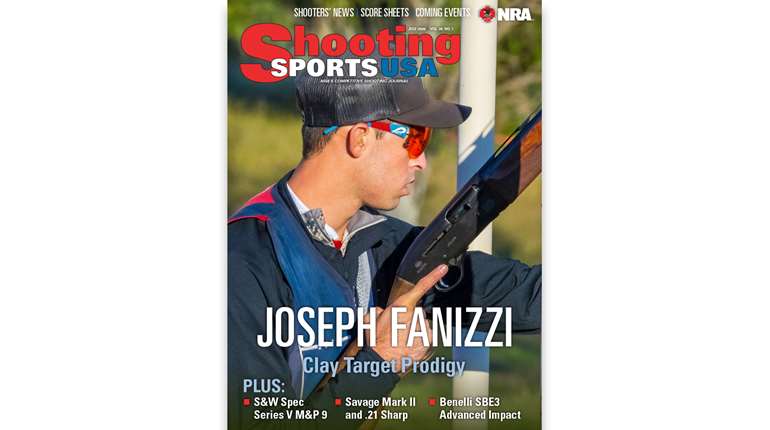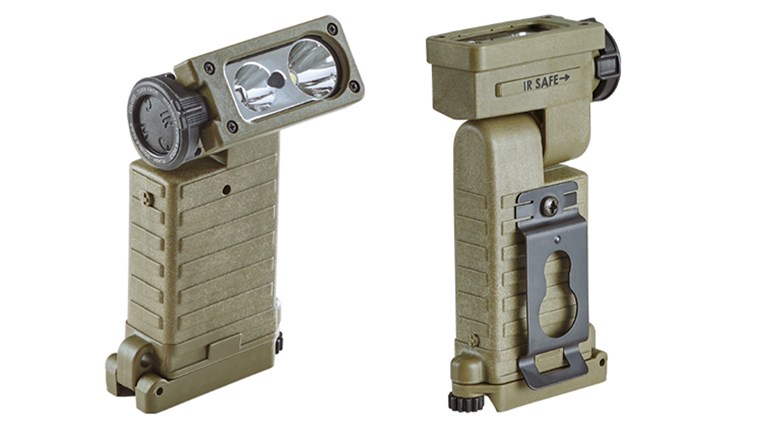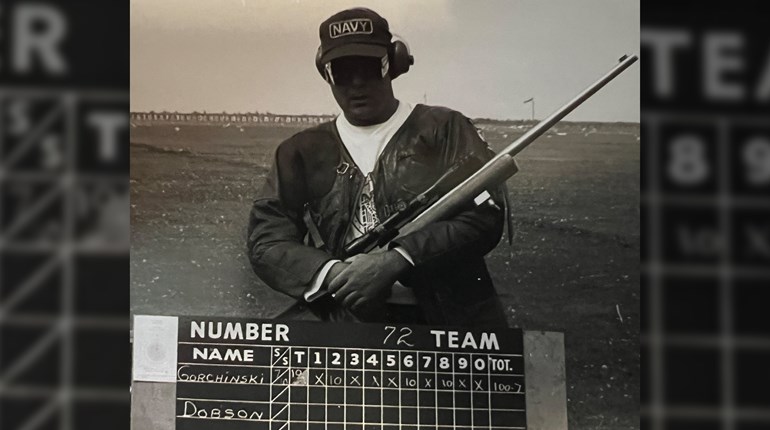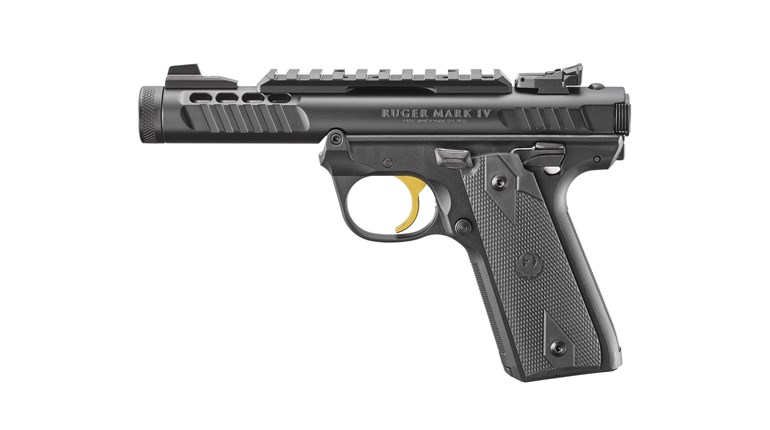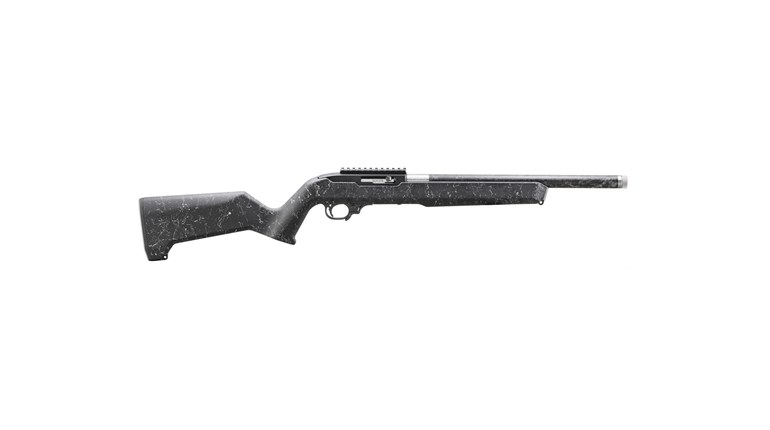
There are more people that are trying out the United States Practical Shooting Association’s (USPSA) Pistol Caliber Carbine (PCC) division than ever before. Noticing the trend, the Palmetto State Armory (PSA) provided two PCC carbines for review.
The first is very traditional in appearance, the PSA Custom 9mm Rifle in metallic black. Known as the PSA Custom Series PCC, this carbine is slated to be available in July 2019. [Editor’s note: No pricing info, and the PSA website currently says that it’s out of stock.]
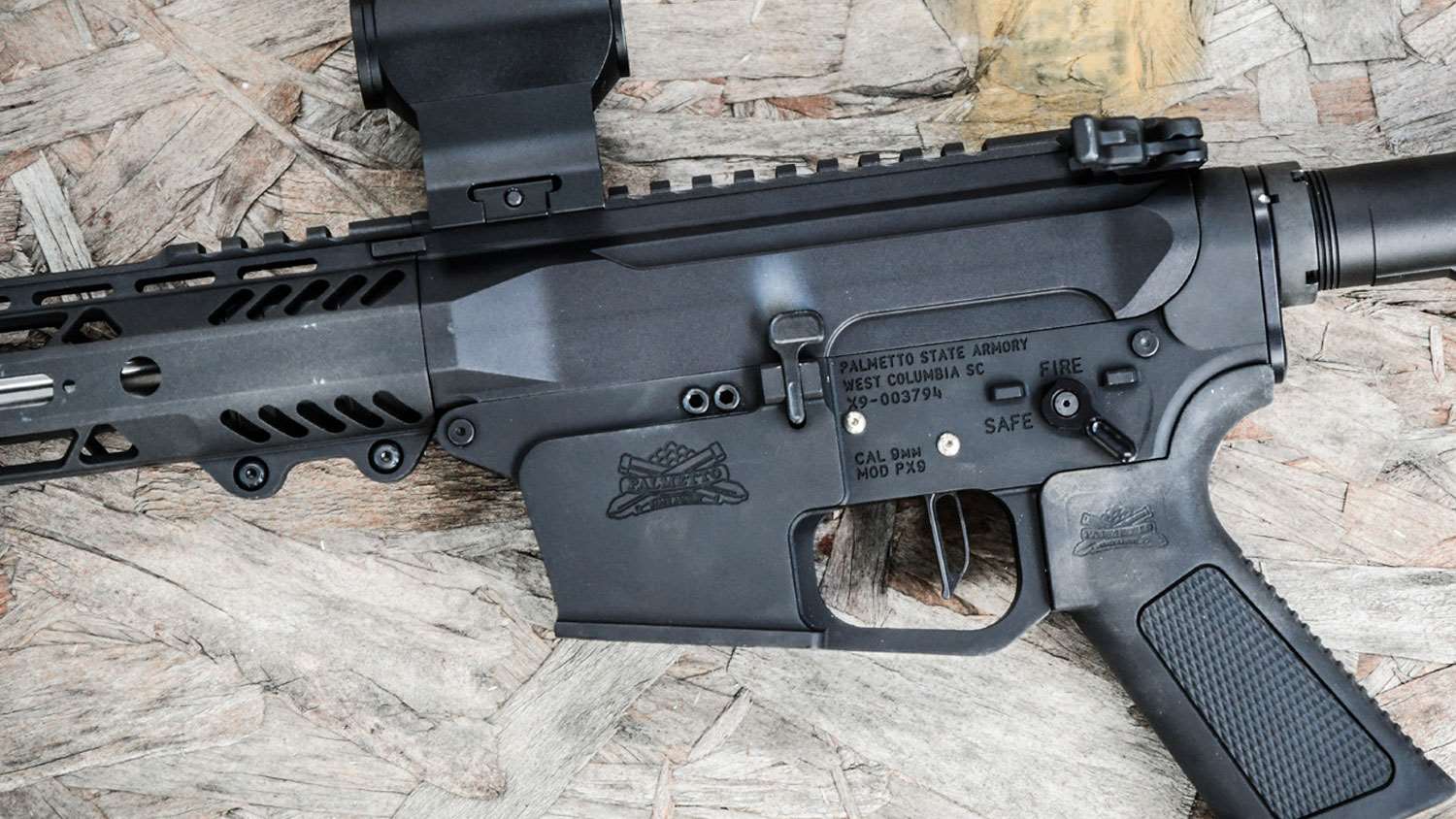
The second is the Lead Star LSA 9 Special Edition PCC Rifle in black and blue. [As with the PSA Custom, no pricing info was available for the LSA 9. A quick search found the Stage Zero website selling it for $1,250.] Both of these carbines arrived with an optic already in place, the PSA Custom with a PSA red dot optic, and the Lead Star fully equipped with a C-More sight. Both carbines were ready for the firing line, straight of the box.
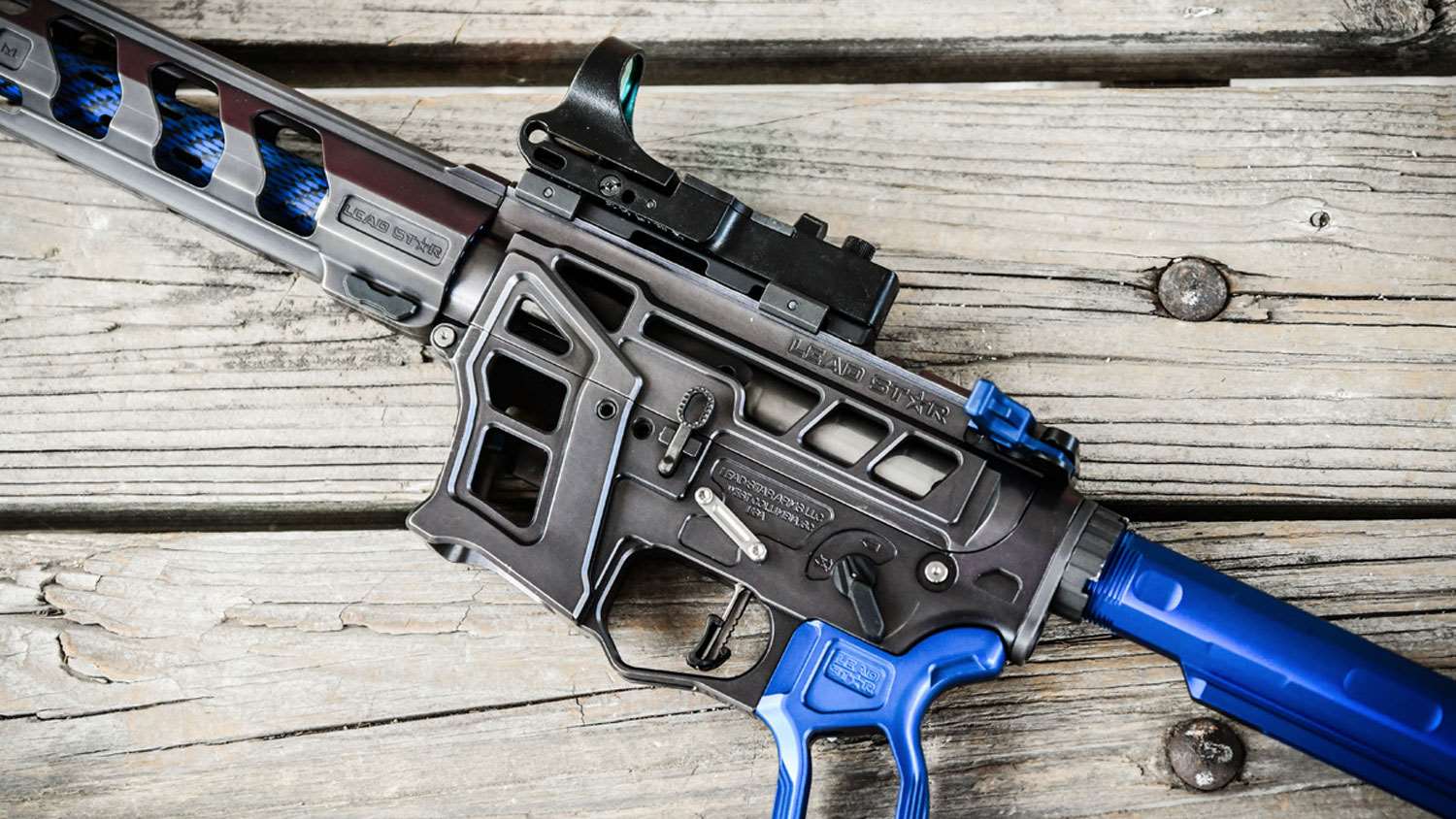
At first impression, both carbines appeared to be solid in construction and have features that a serious competitor would like to have in place. The PSA Custom was short-changed in the attention department by all of the gawkers at the counter at Parabellum Firearms and Range while the paperwork was completed. The Lead Star is drastically skeletonized The blue barrel, pistol grip and buffer tube drew the attention of all the folks in the showroom. Several onlookers crowded around for a closer look.
The PSA is a lightweight carbine that comes in just under eight pounds. The 16-inch barrel is compensated, protected by an aluminum handguard which has a rail at the muzzle for attaching sights. The lower is aluminum and takes Glock magazines. The safety is ambidextrous, the bolt release is standard and the magazine release is extended to allow for faster magazine changes. The stock is adjustable. It comes with the Lead Star Extension, a large charging handle that would be impossible to miss even in a hurry, which is a great feature for those pesky unloaded starts that happen in competition. The trigger is flat, breaks crisply and has a very positive reset. I was looking forward to seeing how the trigger performs on the range. The trigger may be what sets this carbine apart from others on the market—as it feels really good.
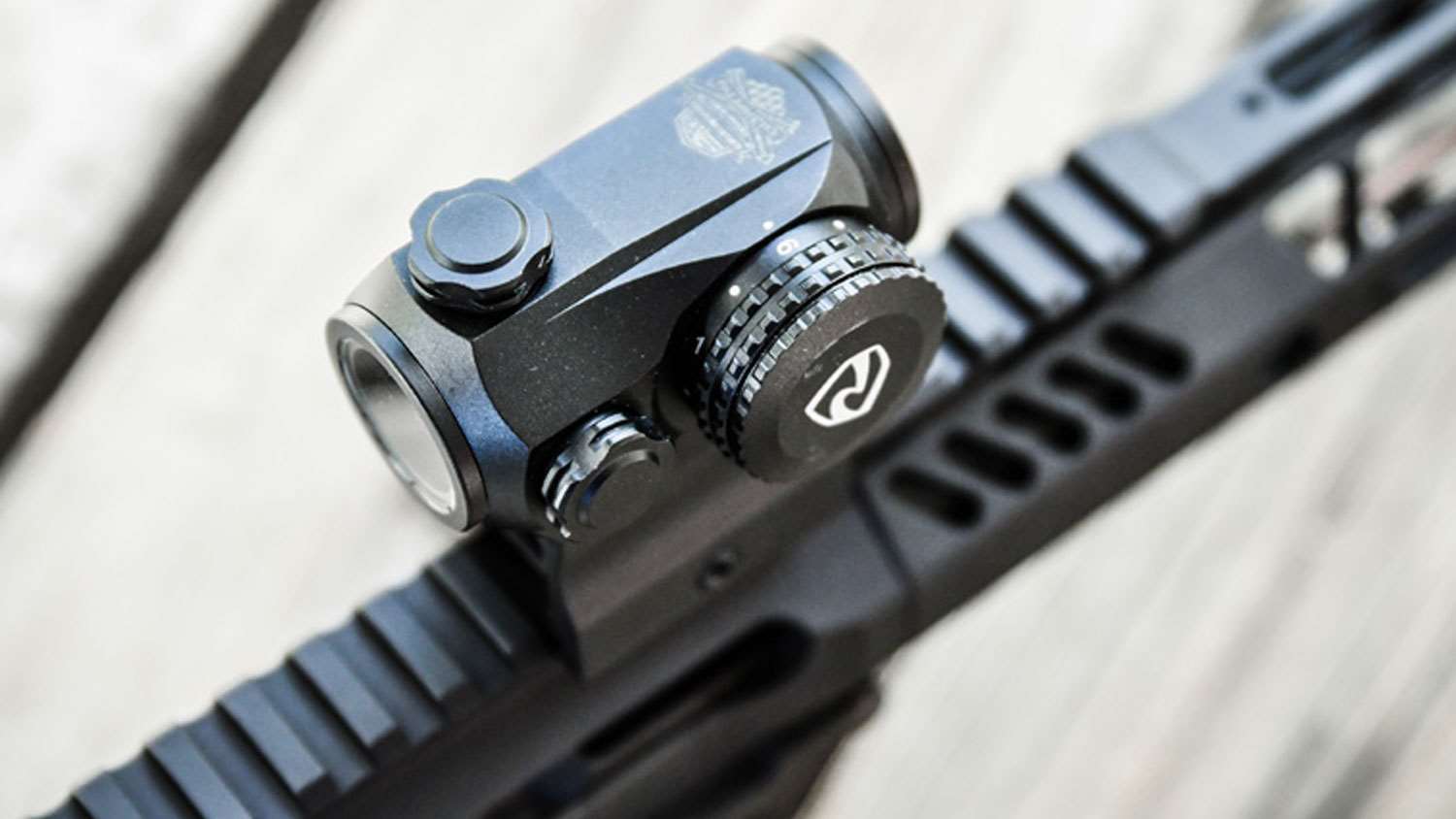
The Lead Star is a very lightweight carbine, tipping the scale at only six pounds. The stock is fixed in place, and the Lead Star charging handle rides in place on the left side of this carbine. The blue pistol grip, like the entire gun, is skeletonized, and the receiver is drastically opened up to lighten the carbine. The aluminum handguard shields the barrel of the gun and is covered by a black and blue carbon-fiber wrap. The compensator is also blue. The magazine release is large and allows for easy release with the trigger finger. The safety is ambidextrous and somewhat larger than on the PSA Custom, making the size of this safety just right. The magazine release is hollow in the center, but the edges are textured to help insure a positive press and release of the bolt at speed. I was looking forward to getting these guns out to the range.
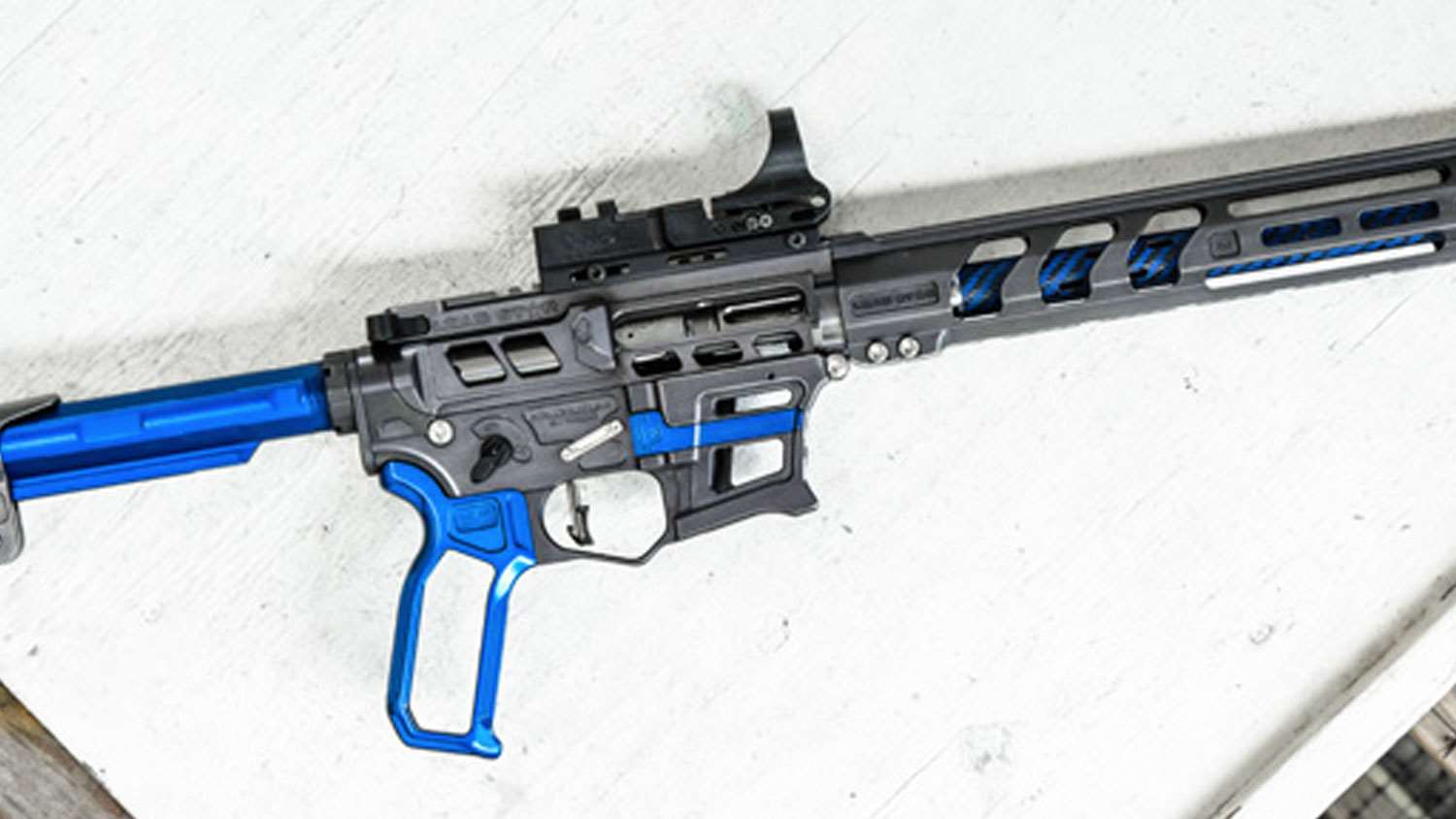
During the final day of match set up for the Indiana SNS 400, which was held at the Silver Creek Conservation Club, I was able to slip away to chronograph some ammunition through these two guns, and do a little bit of test firing. A few sighting rounds were fired from a seated position with elbows resting on the table. (The last thing I needed to do is shoot a chronograph on a crowded range of people who would never let me forget it.) I fired at a plate rack at 25 yards. The Lead Star and the C-More were right on target. The PSA Custom needed a slight adjustment, as it was hitting just a little low. Feeling somewhat smug for having saved the life of the chrono by a few sighting rounds, it was time to move on to recording bullet velocity. The Lead Star had noticeably more concussion hitting my face while shooting these first few rounds. Steve Wright, local legend and PCC shooter, said that is common when dealing with skeletonized guns. Being an authority on “normal” is outside my wheelhouse but I trust Steve’s experience, and the reality was smacking me in the face on each trigger press. Shooting the PSA Custom did not provide the same concussion. At this point I was wondering how pleasant shooting this Lead Star would be.
The live fire time on the range was not extensive, but we tested both carbines side by side. Jake and I shot three Bill Drills with each gun. While shooting the Lead Star, Jake turned in times of 1.99, 1.86 and 2.11 seconds and 28 of the 30 possible points on each of the three runs. I had times of 2.10, 2.17 and 2.07 seconds with all 30 points on the first two runs and 28 points on the final run. There was enough jump on the dot to call shots, but the dot stayed completely in the A zone the whole time. If the trigger press was good, the A zone would be hit at speed, and the gun functioned well. The trigger was comfortable, as the finger rested in the trigger shoe very nicely.
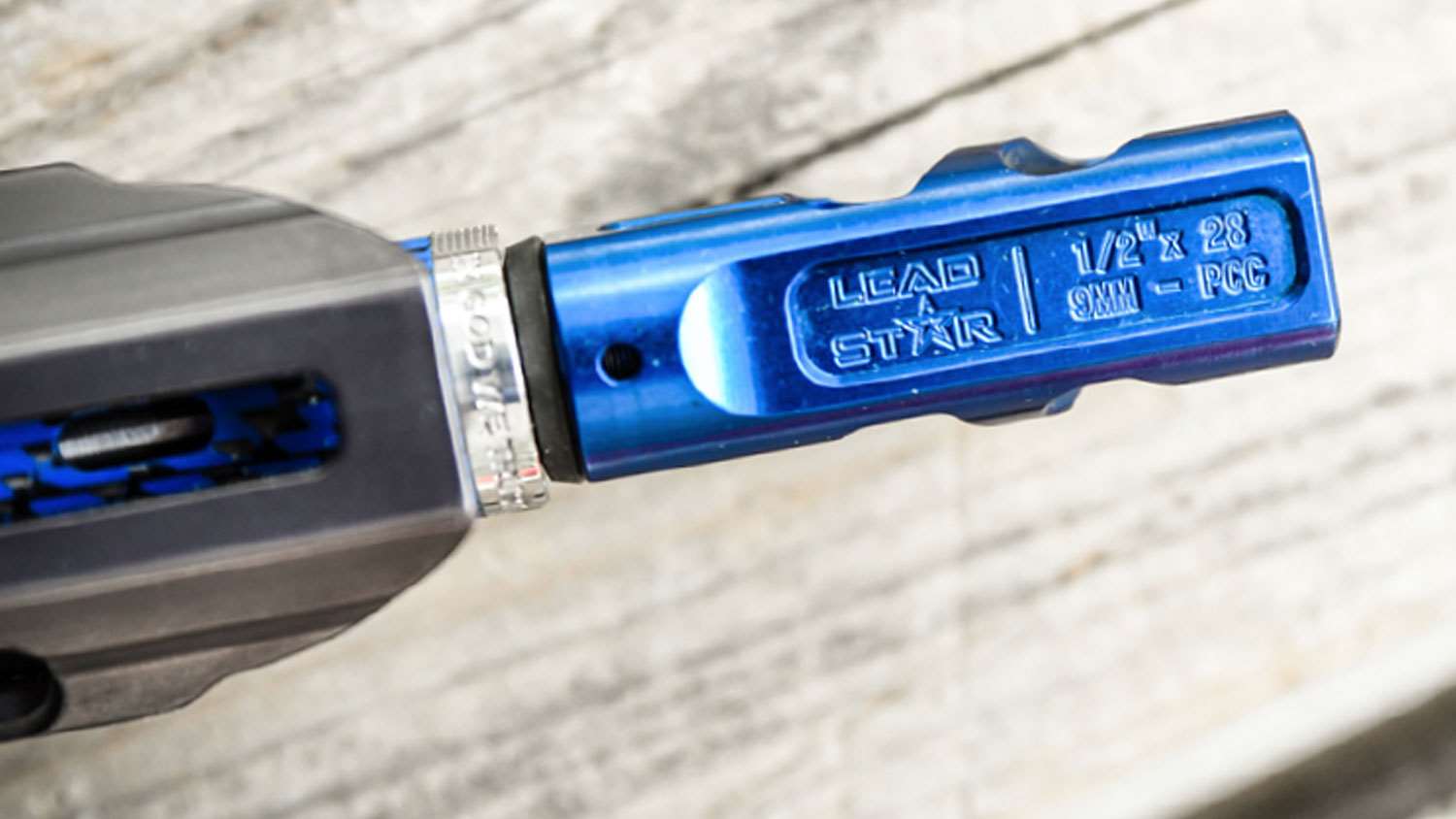
The next drill with the Lead Star was a three-target array with targets staggered from near to far at 10, 15 and 25 yards. Jake turned in times of 3.06 seconds with all 30 points, 2.86 seconds with a paltry 24 points, and 2.81 seconds and 28 points. My results were 3.17 seconds with 28 points, 3.34 seconds with all 30 points, and 3.22 seconds with 28 points. This array provided a snapshot of why PCC is so much fun. The fast and accurate shooting was easier than a pistol and very repeatable. Jake commented a few times about how much recoil is felt from this carbine.
We had the guns on the range two different days, and some local shooters also fired a few rounds through the guns during these sessions. With regard to the Lead Star, the comment always was some version of “this is a nice-looking gun” and “it recoils much more than I expected.”
Next, we ran a couple of El Presidente drills to incorporate a magazine change into the testing. Jake had a run of 6.30 seconds with 46 of 60 possible points. His second run was 6.19 seconds with 50 points on the targets. My first run was 7.12 seconds with all 60 points; my second run was 6.22 seconds with 58 points on the targets. I found the shooting to be smooth enough, but finding the reload on my belt was an adventure. I do not know why finding the magazine was so tough. Getting the magazine from my belt felt like Ray Charles looking for an ink pen on a coffee table full of knick-knacks. It was a mess. The RO made a comment that the reload took a long while. He was right.
Our last shooting exercise was a combination of the arrays we had set up. We used the El Prez targets and then the distant targets at 15 and 25 yards and a 12-inch steel plate at 27 yards, so there were 55 points available in this array. Jake ran the Lead Star on this course of fire in 5.30 seconds and 4.53 seconds, with the points being 49 and 47 respectively. My runs were 5.83 and 6.74 seconds with the points being 53 points of the 55 possible both times.
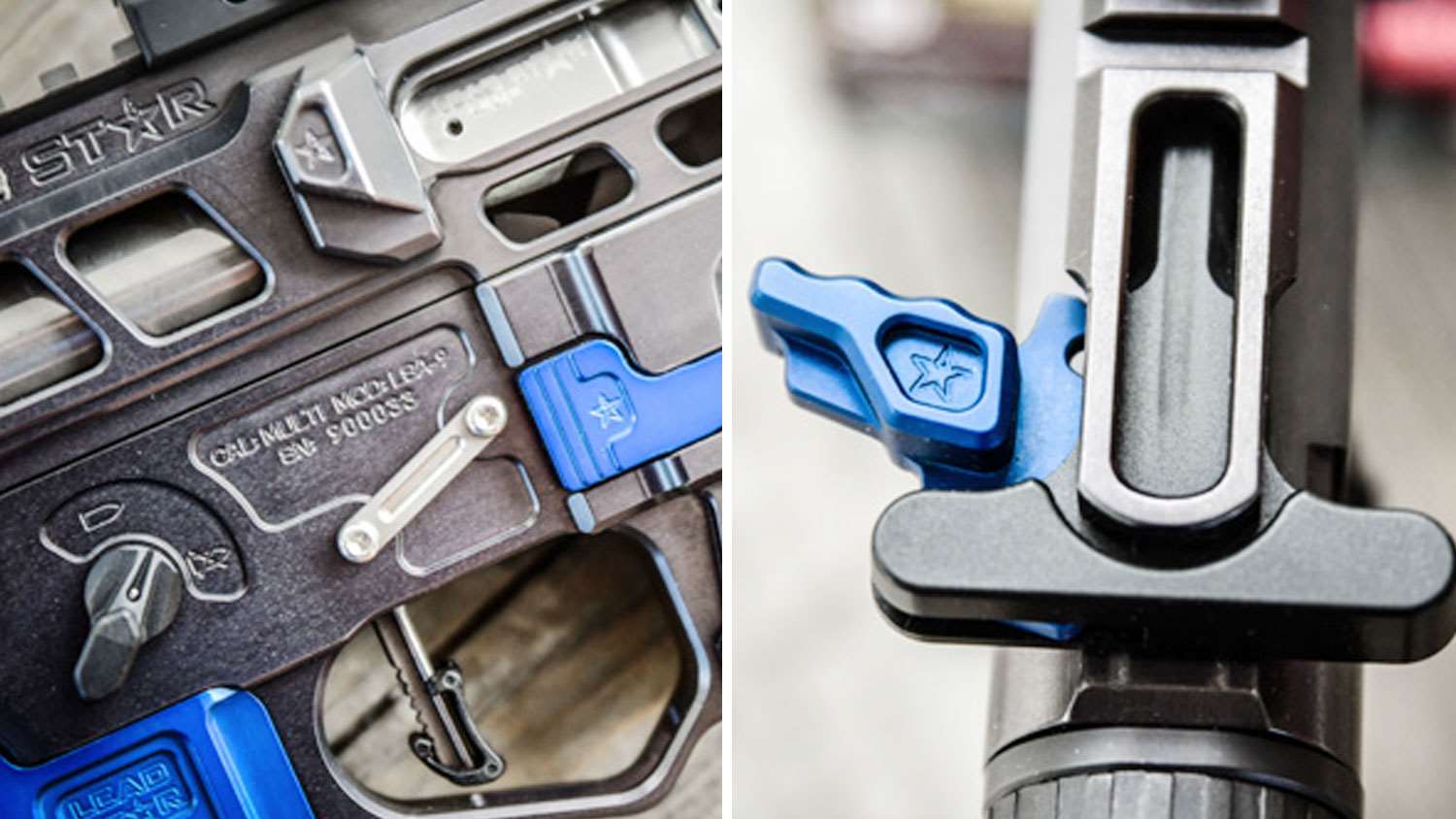
Someone who was taking the PCC division seriously could do some great work with this Lead Star. The Lead Star does attract a lot of attention because of how flashy it is—so if you take this gun to the range, expect people to come up and drool all over it and want to talk about it and shoot it. The first few rounds I fired as sighting rounds before using the chronograph, the blowback and concussion was very noticeable. Later in the session, in the drills and the second day that I shot the Lead Star, I did not notice it. There was a short adjustment period. If a gun is going to get cut down and lightened drastically, it is not going to have the same felt recoil as a heavy gun, but the felt recoil of the Lead Star is not enough to be distracting.
The PSA custom was put through the same drills as stated above. I felt that both carbines were fine, but PCC is just not my cup of tea. Between the two carbines, my preference became the PSA custom. I liked the extra weight and the extra length of the stock and the fact that the stock was adjustable. The gun is not flashy in any way—which is fine with me.
My times on the Bill Drills with the PSA custom were 2.14 seconds, 2.17 seconds and 1.91 seconds, and all shots fired fell into the A zone for full points. Tracking the dot on this gun was easy. It is too bad my finger does not have full hosing speed capabilities. Trigger speed is Jake’s department. He put up times of 2.12, 1.79 and 1.92 seconds—with 28 points on the first two runs and 30 points on the last run.
On the near to far array, my times were 3.37, 3.73 and 3.44 seconds, with 28 points on the first two attempts and 30 points on the final attempt. Jake threw down times of 3.06 seconds with all 30 points, 2.86 seconds with 24 points, and a final run of 2.81 with 28 points.
My performance on EL Prez with this gun was very similar to what I did with the Lead Star. There is not a single knick-knack left on that coffee table and some of those are broken. The first run was a lethargic 7.12 seconds with all 60 points; the second run was 6.22 seconds with two Charlies for 56 points. Jake was not any better, at 7.16 seconds and 46 points, then 6.67 seconds and 50 points on the target. So in this little El Prez competition the question was who can suck more? It looks like the answer today was Jake.
On the larger 55-point array that included steel, my times were 5.57 and 5.45 seconds; the first run scored 53 points and the second run 55. Jake had times that were slightly faster with 4.63 and 4.97 seconds, and his points were 51 and 48 respectively.
During all the test firing of these two guns on the clock, there was never the opportunity to use the large charging handle to clear a malfunction. I think the charging handles would shine in unloaded start situations. Begging the question, why did we not do any unloaded starts to see how it would go? I wish I could say why.
Both of these guns ran fine without a malfunction when on the clock. We used a variety of ammunition in the guns and they fed and operated just fine. Sometimes there was a variety of ammunition in the same magazine, and neither gun was finicky at all. The Lead Star did have to be racked once during the early part of the chronograph session. In that situation the round just did not chamber; I racked the slide and got back to shooting. I did not investigate fully what happened, and it only happened once. I just mention it here in the spirit of full disclosure.
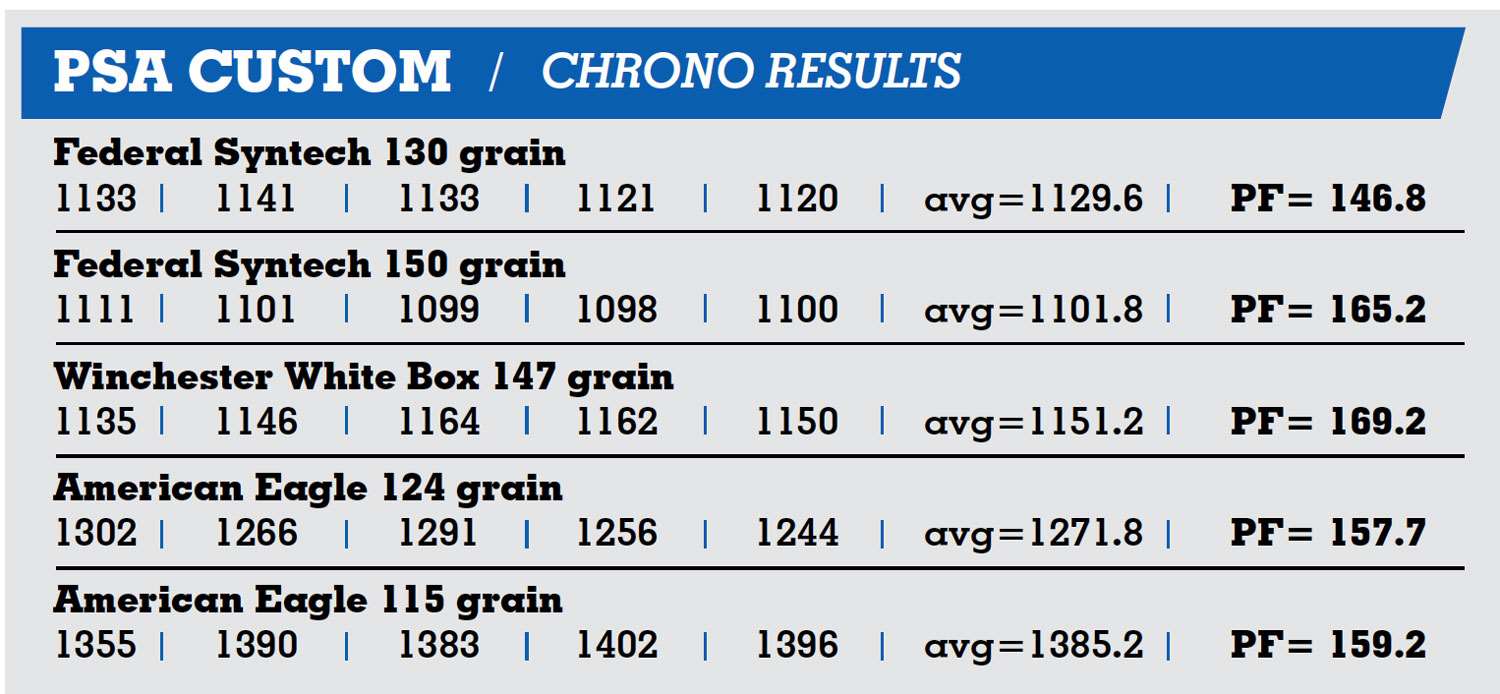
Both carbines are fine guns and would provide the shooter with a viable PCC gun that would perform and be a lot of fun on the range. If I were to pick up one of these two guns and go shoot a match with it, I would choose the PSA custom. This is mainly just a matter of personal preference. I like the way it feels in my hands compared to the Lead Star, and I feel like I could be more consistent with it due to the adjustable stock. The only thing I would change on the PSA Custom is the safety. It seems a little undersized and requires some precision to deactivate it. The Lead Star’s safety is a better and more robust size.
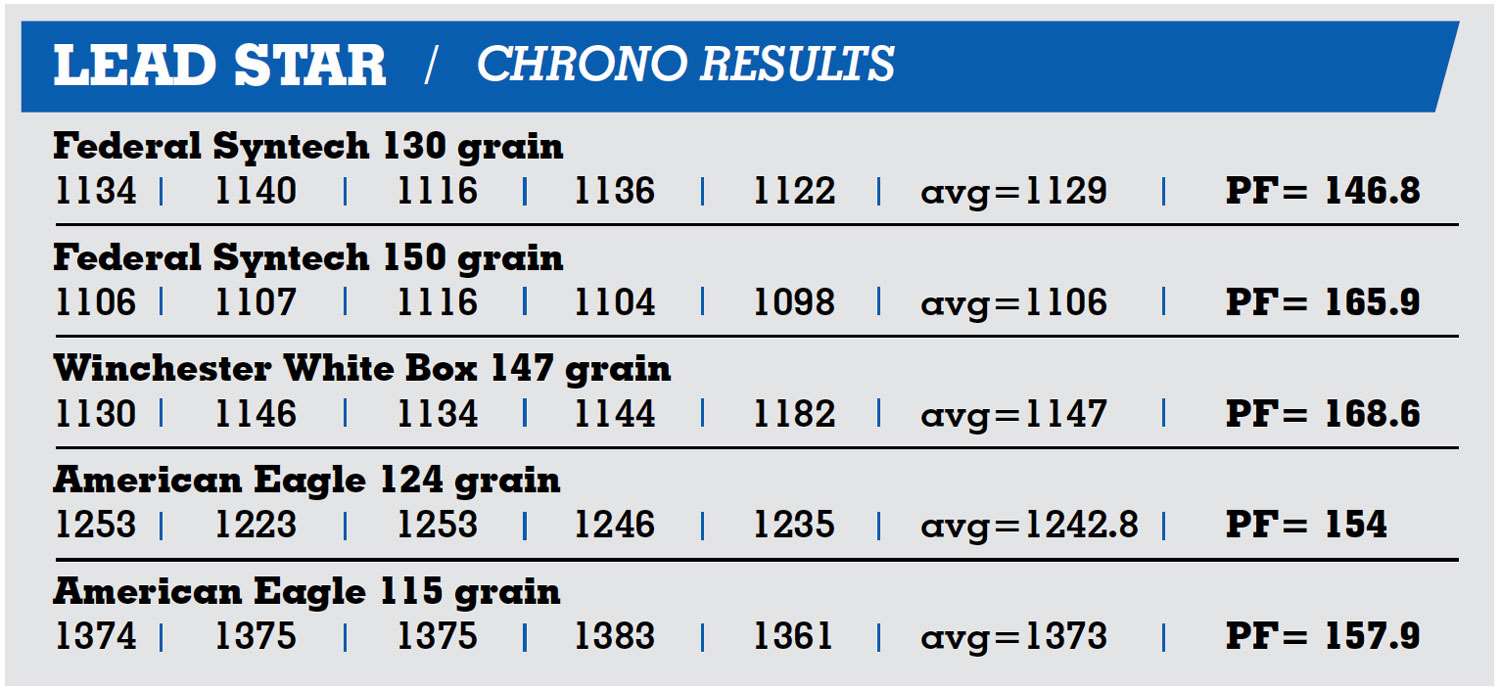
In summary, they are both solid guns and would perform very well in the PCC division. The triggers on both guns were very nice. There would be no reason to further adjust, tune or replace the triggers on either gun. I think the pickiest of all competition shooters would be more than satisfied with these triggers. If you are shopping around for a gun with which to shoot PCC, these are excellent options.
Lead Star Arms is based in West Columbia, SC. A view of their website will give the AR fans out there a real treat. Click on the drop-down menu list of “Firearms” and you will be greeted with models like the “Grunt”, “Barrage” and “Prime” offered in 9mm/ PCC, .223 Rem./5.56mm, .300 Blackout, and the big boys—7.62x39 and .458 Socom. Lead Star also offers an entire smorgasbord of parts and build kits for the DIY folks. Lead Star has started a dealer program as well, and one of the first companies to offer them is Palmetto State Armory.
PSA is also located in Columbia, but also operates five store locations in South Carolina, four of which have indoor ranges, along with the outdoor shooting facility at Swansea. PSA started as just an ammunition and magazine website but has grown into a full-service company, and now has its own personalized firearms brand as well as optics.
Article from the July/August 2019 issue of USPSA’s FrontSight magazine. Photos by Jake Martens
See more: 5 Proven Pistol Caliber Carbine Choices For Action Shooting



